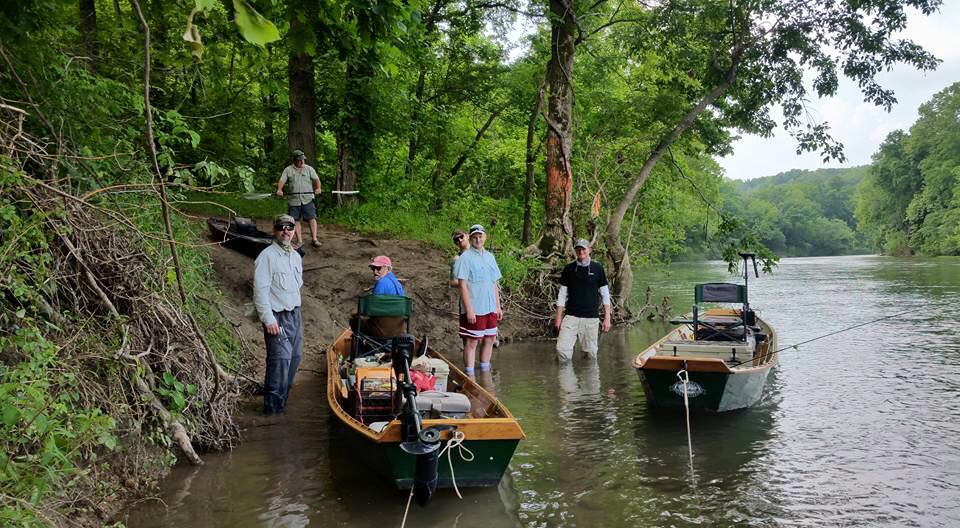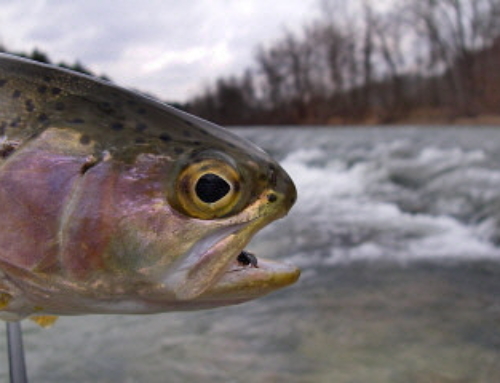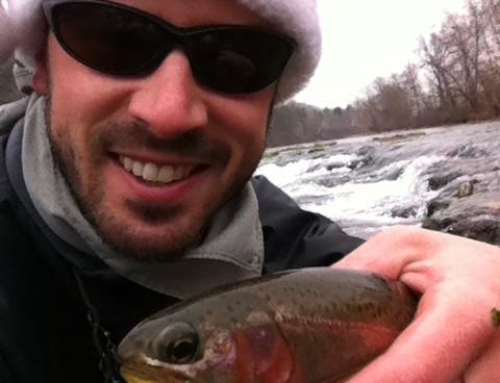Securing a skilled professional guide can be a very wise investment for someone serious about any outdoor sport. But, like all investments, there is a degree of responsibility that lies in your hands if you hope for your outing to be a success. As a fly-fishing guide who operates over one hundred trips annually, I have witnessed what can happen to a trip when guests show up unprepared. Hopefully, this article will shed some light on, what I’m sure, most pro guides will tell you are the responsibilities of the angler.
Your first responsibility is to communicate, and that includes listening. Yes, anglers have responsibilities to insure the success of their trip. The number-one mistake I see is the failure of clients to heed my advice during pre trip conversations, or failing to take the time to make those conversations. Be assured that a busy guide is on the phone or at his computer for a few hours after each day’s trip answering messages. With all the other daily odds and ends a guide needs to attend to (lunches, cleaning lines, tying flies, updated web sites, family time…), you simply cannot expect him or her to chase-down upcoming clients to be sure they have all that they need. My web site, as do most, clearly lists what I expect a guest to arrive with, and I will certainly stress that during a conversation when asked. But if that conversation does not occur, well then I assume my guest did his research. Since each guide will operate differently, one cannot assume what worked last year with Guide “A” will apply to this year’s Guide “B.” If a guide takes the time to mention an item you need to have, then be pretty certain you need to have it. If you fail to heed that advice then you will make your day, and your guide’s job, more difficult and less enjoyable than it needs to be. Please, communicate. Ask questions. Your guide will appreciate that time ahead of the trip and he’ll make a mental note of your serious nature toward your trip and reciprocate on the day of the trip. Communication will be the central asset to a positive and rewarding outing.
This certainly extends to your skill level. Just because you have fished forever, and have been to every continent does not mean that you are good! Realize that much of the day may be consumed by learning skills necessary to fish the water and conditions you face. Be humble enough to accept that fact. This is truer with some fisheries and fish than others. Communicate a fair and honest representation of your skills with your guide so he or she can plan the day accordingly. If a portion of the day needs to be set aside to focus on casting or mending then things like location and rod selection can be tweaked to suit the needs of the angler.
Your second responsibility is to remain open-minded. Too many of my guests come with a pre-determined opinion of how we’ll fish, where we’ll fish, and how we’ll do. I will assume that guests are hiring me because they trust my knowledge and abilities. Once that assumption is proven otherwise the day will certainly fall apart. I owe it to my guests’ investment to do all I can to insure them a return on that investment. But no guide will ever promise a stellar day since there are too many outside factors involved. Good guides, however, will make decisions daily as to the best methods and areas to fish. It is possible that they do not pan out; after all this is still fishing! It is wonderful to ask “why?” of your guide in an effort to gain knowledge. But if you challenge your guide’s decisions then you are taking a road to a disturbing trip.
Guests also need to keep in mind that not all fisheries are created equal. It is simply unfair to both yourself and your guide to compare Trip A with Trip B. The differences escalate as your compare different species (trout versus bass), times of year (early fall versus dead of winter), geography (Missouri versus Canada), or methods (spin fishing versus fly-fishing). For these reasons you can really only judge your outing based on what the venue can provide under the conditions you fish. Likewise, you can only judge your guide based on how hard he works at teaching, entertaining, and striving to educate you about the fishery. Once fish numbers become you scale of success you have just set-up yourself and your guide for failure. Enjoy what the waters give you, but the purpose of a guide is to give you direction and put you onto fish. Guides cannot make anything else happen.
Your third responsibility is to be in shape, or make your guide aware of your restrictions. At no time do I want to make a client uncomfortable or put them in a stressed position. Conversely, I will be working as hard as I can to teach what I need to teach while trying to maximize my guests’ success. Very often this involves mobility. I do have clients with physical restrictions. By being made aware of that, daily game plan decisions will take that into account and we can then discuss what may or may not be repercussions of those decision. It may mean a slower day since we cannot get to the best water or stay with the fish, seek fresh water or fish, or maybe we can expect to lose more fish than usual due to decreased mobility. If those discussions can be made up front then the day will be more enjoyable. But, when a guide finds that his client falls every time his feet get wet, the guide is then put in a very bad position where he cannot do his job.
If you lack physical limitations of mobility, but are just plain out of shape then your day will suffer. Booking a trip is not cheap, so it’s wise to prepare physically. It’s a good idea not to go on a bender the night before. Get a good night’s rest. Stay hydrated, even if it’s cold! Your guide will be at home in the water and should be in peak shape so that his condition does not limit your fishing. But if clients cannot wade 50 feet of river without getting winded and irritable then even the best guide cannot do his job. Your day will suffer. If you are simply not in shape, let your guide know up front–before you get to the water! There are always options with planning.
Your final responsibility is to listen to your guide and apply his counsel! As a guide I have made the decision to make a career out of teaching people how to fish. Like any teacher, guides have the skills to teach but if the guest lacks the desire to apply that knowledge, the day will suffer. If your guide notices a hitch in your cast he’ll try to correct it. If you decide not to take his advice then your presentation will suffer and you may not get into many fish. Likewise, there is no rote template on how to fly fish. Your guide will know best what the local conditions and fish are dictating and how to best present your offering under those conditions. It may be FAR different than what you are used to or comfortable with. If you do not make a serious attempt to apply what your being taught, then you cannot expect to see results. Ignoring repeated attempts by your guide to adjust what your are doing will lead to nothing but frustration on both ends. You obviously want to succeed, and your guide wants nothing more that for you to succeed. Ignoring him makes little sense.
Often this requires unlearning bad habits and your guide will understand that. But this is where communication is again important. By verbally acknowledging that your hear him or her and that you want to do what is being suggested, but you are having trouble overcoming a bad habit makes for a far better day. Conversely, saying “yep, got it” then repeating the same flaw over and over will frustrate even the most patient of guides. Showing up for class is never enough. You need to do the work and make the effort in order to achieve success.
To wrap this all up let me offer an analogy to you hunters: Say you invest in a guide for an elk hunt. In the months prior to your trip you: fail to read your guide’s list of items to pack or ask him to verbally provide you with a list; never go to the range; show up with brand new boots and untested ammo, and a smoke hanging our of your mouth. What shot does your guide have at making your dream trip come true? Will it get better as you question your guide’s decision about hunting that draw, not following his advice about scent control, and then lighting up every time you set up on an animal? It’s doubtful. Your guide has not been able to do his job and you are the one responsible.
Please do your job so your guide can have a fair shot at doing his or hers.




Leave A Comment